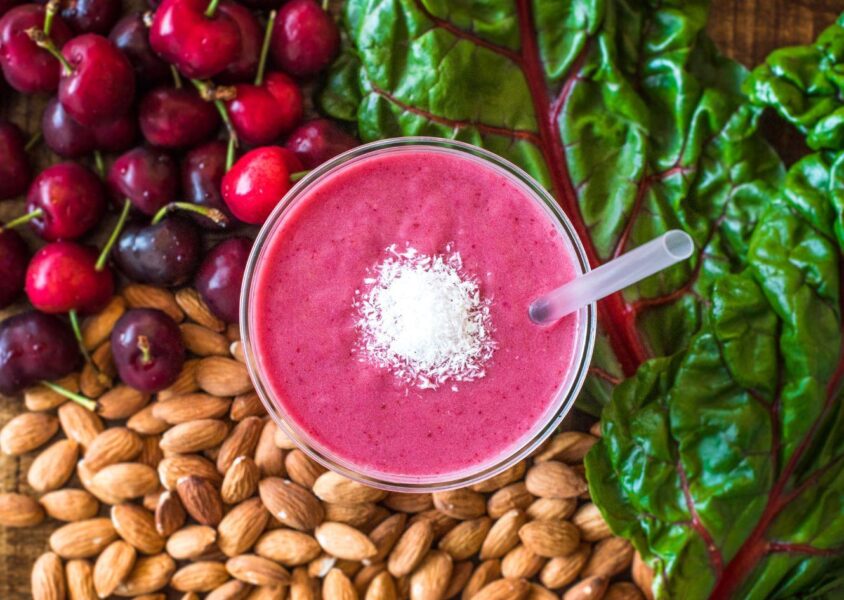Vegans Can Have A Balanced Diet

A vegan diet is a type of plant-based diet that excludes all animal products, including meat, poultry, fish, dairy, and eggs. Vegan diets can be healthy and nutritionally adequate for people of all ages, including children, adolescents, and pregnant or breastfeeding women, as long as they are well-planned and include a variety of foods.
Here are some tips for creating a balanced vegan diet:
Include a variety of plant-based protein sources: Vegan protein sources include beans, lentils, tofu, tempeh, nuts, and seeds. It’s important to include a variety of these protein sources in your diet to ensure that you are getting all the essential amino acids your body needs.
Include iron-rich foods: Plant-based sources of iron include fortified cereals, beans, lentils, tofu, nuts, and dried fruit. Eating iron-rich foods along with foods that are high in vitamin C, such as citrus fruits and vegetables, can help improve the absorption of iron.
It’s important to eat iron-rich foods along with foods that are high in vitamin C, such as citrus fruits and vegetables, to help improve the absorption of iron. It’s also a good idea to consume a varied diet that includes a variety of different iron-rich foods to ensure that you are getting enough of this nutrient. If you are concerned about your iron intake, it’s a good idea to consult with a healthcare provider or a registered dietitian.
Get enough calcium: Calcium is an essential mineral that is important for a variety of functions in the body, including building and maintaining strong bones and teeth, muscle function, and nerve function. Calcium is found in many foods, and it’s important for vegans to include calcium-rich foods in their diet to ensure that they are getting enough of this nutrient.
Here are some examples of vegan foods that are high in calcium:
- Fortified plant-based milk: Many plant-based milks, such as soy milk and almond milk, are fortified with calcium.
- Tofu: Tofu is made from soybeans and is a good source of calcium.
- Almonds: Almonds are a good source of calcium and can be eaten as a snack or added to recipes.
- Leafy green vegetables: Leafy green vegetables, such as broccoli, kale, and spinach, are good sources of calcium.
- Fortified orange juice: Some brands of orange juice are fortified with calcium.
Vegans should include a variety of calcium-rich foods in their diet to ensure that they are getting enough of this nutrient. If you are concerned about your calcium intake, it’s a good idea to consult with a healthcare provider or a registered dietitian.
Get enough vitamin D: Vitamin D is important for bone health and is found in very few plant-based foods. Vegan sources of vitamin D include fortified plant-based milk, orange juice, and cereals, as well as exposure to sunlight. Vitamin D is an essential nutrient that is important for bone health and is found in very few plant-based foods. Vegan sources of vitamin D include:
- Fortified plant-based milk: Many plant-based milks, such as soy milk and almond milk, are fortified with vitamin D.
- Fortified orange juice: Some brands of orange juice are fortified with vitamin D.
- Fortified cereals: Many cereals are fortified with vitamin D, making them a good source of this nutrient for vegans.
- Exposure to sunlight: The body can synthesize vitamin D when the skin is exposed to sunlight. However, it’s important to use caution when getting sun exposure, as excessive sun exposure can increase the risk of skin cancer.
Get enough vitamin B12: Vitamin B12 is an essential nutrient that plays a vital role in many body functions, including the production of red blood cells and the proper functioning of the brain and nervous system. It is found almost exclusively in animal-derived foods, so it can be challenging for vegans to get enough of this nutrient. Here are some plant-based foods that are good sources of vitamin B12:
- Fortified plant-based milks, such as soy milk, almond milk, and rice milk. These milks are often fortified with vitamin B12, so check the label to be sure.
- Fortified breakfast cereals. Some brands of breakfast cereals are fortified with vitamin B12, so check the label to see if the brand you choose is a good source of this nutrient.
- Nutritional yeast. Nutritional yeast is a type of inactive yeast that is often fortified with vitamin B12. It has a nutty, cheese-like flavor and can be added to a variety of dishes, such as soups, sauces, and popcorn.
- Fortified plant-based meat alternatives. Some brands of plant-based meat alternatives, such as veggie burgers and mock chicken nuggets, are fortified with vitamin B12.
- Vitamin B12 supplements. If you are unable to get enough vitamin B12 from your diet, you may want to consider taking a supplement. Vitamin B12 supplements are available in a variety of forms, including tablets, capsules, and sublingual (dissolvable) tablets.
It’s important to note that it can be difficult for vegans to get enough vitamin B12 from their diet, and a vitamin B12 deficiency can have serious health consequences. If you are following a vegan diet, it is important to talk to a healthcare provider about your vitamin B12 needs and whether a supplement is necessary.